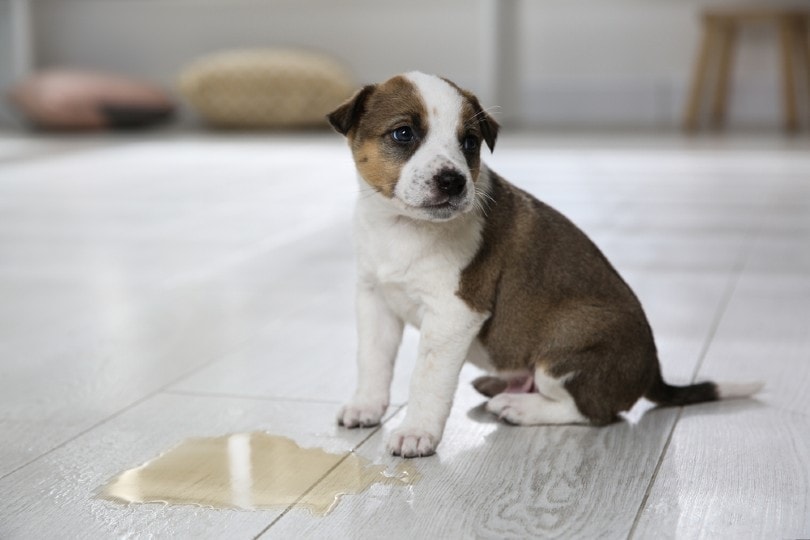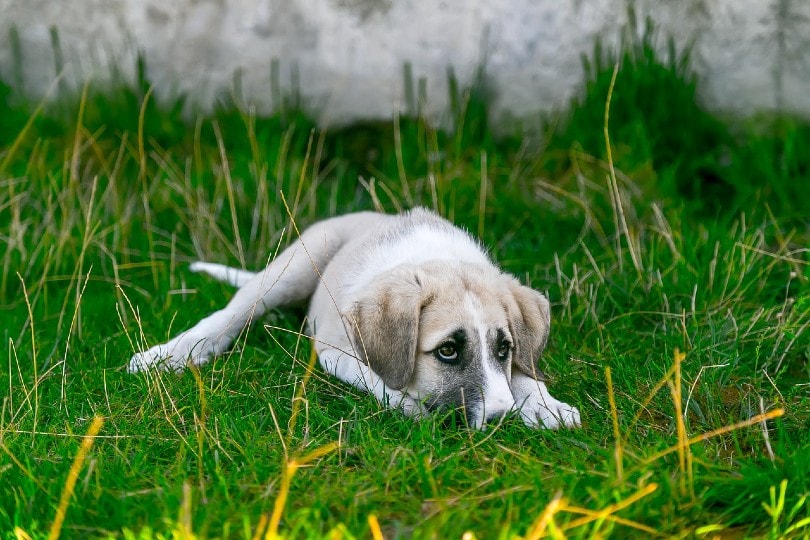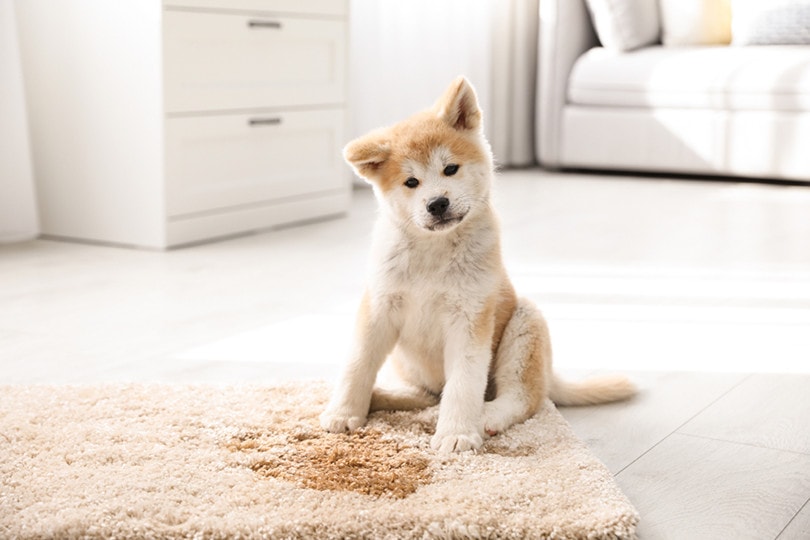Even if you take your dog outside several times a day, he persists in peeing in the house. Whether he does this behavior sporadically or repeatedly, you’ve had enough. How can you teach him to do his business outside?
First, know that there is a difference between poor house training and the categorical refusal to pee outside. In other words, if your pooch urinates sometimes outside, sometimes in the house, it may be because he has not learned to hold himself yet, that his potty training is not finished, or that you are using pee pads intermittently.
On the other hand, if your dog has reached adulthood and never pees outside, this is another problem that you must remedy quickly. It may be related to a health issue or a behavioral disorder that will not improve over time if you do nothing.
Once you have narrowed down the reason for your dog’s behavior, you can start to try and remedy it using some of the tips we’ve listed below.

The 4 Reasons Why Your Dog Does Not Pee Outside
1. Your Pup Is Too Young
If your dog is not 6 months old yet, he probably does not yet have the ability to hold himself back for very long. In this case, there is no other solution than to potty train your puppy properly, be consistent, and, above all, be patient! Your puppy needs some time to learn, and this requires repeating the right gestures, over and over again. And as you know, puppies don’t have the same bladder control as adults, which is why they need to urinate often.
Typically, a puppy can control his urge to pee 1 hour for every month of age. So, if your puppy is 4 months old, he can hold it for about 4 hours. Don’t wait any longer between toilet breaks or your pet may have an accident.
Over time, your pup will gain better control of his bladder.

2. Your Dog Has a Health Issue
Here are the most common medical conditions that can lead to urinary problems in dogs.
Urinary Tract Infection
Urinary tract infections (UTIs) are common in dogs, especially females. These infections can be treated with antibiotics, but if they recur, the vet will try to identify the underlying cause. Also, a dog with an untreated UTI might need to be hospitalized if the infection spreads to his kidneys, so don’t take any chances.
Bladder Cancer
Persistent UTIs, accidents in the house, frequent small urination, or bloody urine can be signs of bladder cancer. In fact, different types of cancer can affect a dog’s urinary tract, but transitional cell carcinoma (TCC) of the bladder is the most common.
There are treatments to improve the dog’s quality of life, but unfortunately, the prognosis for survival rarely exceeds 6 to 12 months. But rest assured: this type of cancer only accounts for less than 1% of all reported cancers in dogs.
Urinary Incontinence
All dogs can develop urinary incontinence, but spayed females are usually more affected. This happens when the muscle – urethral sphincter – that prevents urine from flowing out of the bladder no longer performs its function well. This may be due to hormonal, structural, or neurological deficiencies.
Diabetes or Kidney Failure
Dogs with diabetes or kidney failure often drink and urinate more than normal, which can lead to accidents around the house.
If your dog suddenly starts urinating inside the house, he may have a health problem. Take him immediately to your veterinarian so that the problem can be diagnosed if there is one.
If you need to speak with a vet but can't get to one, head over to PangoVet. It's our online service where you can talk to a vet online and get the advice you need for your pet — all at an affordable price!

3. Something Outside Is Bothering Your Dog
If there’s no medical reason your dog is urinating inside, it’s possible that something outside is stressing or scaring him.
For example, when you take him out for his needs, is he distracted by a thousand little things in his surroundings? Does he feel safe? Is he constantly disturbed by children, people, or other dogs in his environment? Are there loud noises such as a lawnmower or construction site nearby?
In short, all these things can prevent your pooch from doing his business outside, while the house can seem like a more reassuring and safer place.

4. Your Dog Is Used to Peeing Inside the House
Your dog may pee in the house just out of habit. Therefore, he always comes back to the same spot because the smell is still present. This is why it is very important to thoroughly clean soiled surfaces with enzymatic cleaners to eliminate stubborn odors and pheromones left behind by your pet.
- Side note: An unneutered dog may develop the habit of marking his territory inside the house, but this reason alone does not explain why he will not urinate outside.

Teaching Your Pup to Pee Outside: A Review of Key Points
- Take regular and enjoyable walks with your pet.
- Reinforce your dog’s good behavior with games or treats.
- Have a reassuring, calm, and composed attitude.
- Praise your dog warmly when he relieves himself outside.
- Don’t punish your pet if it has had a minor accident in the house while you were away.
- Don’t reinforce his fears by petting him when he’s anxious or stressed.
- Make every walk a positive experience for your pup.

Final Thoughts
Since fear or anxiety are often the main causes of your dog’s refusal to urinate outside, you will need to eliminate any potential source of stress. Stay close to your dog during outings and try to identify what could frighten him.
Unfortunately, despite all your good intentions, it is sometimes difficult to find the exact source of your pooch’s anxiety to pee outside. In these cases, you may need to hire a dog behavior specialist or certified dog trainer. This professional will be able to advise you better on the method to follow after carefully observing your furry friend’s behavior.
See also:
Featured Image Credit: New Africa, Shutterstock





















